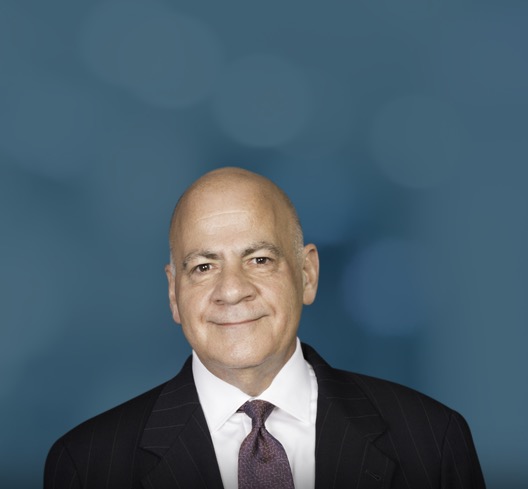Don’t Golf During Intermittent FMLA Leave

Employee abuse of intermittent FMLA leave is a continual problem for many employers. When an employee seeks intermittent FMLA leave for their own health condition, the U.S. Department of Labor’s Certification of Health Care Provider form requires the provider to specify the need and schedule for follow-up treatments, and the reason, frequency, and duration of “episodic flare-ups” which will require the employee to be absent from work. But, how closely do employers look into whether an employee is taking intermittent FMLA leave for the specific reasons stated in the certification? How many employers, wary of being hit with an FMLA retaliation claim, simply are afraid to challenge an employee’s absence where the employee only told their supervisor that they wouldn’t be at work because they were “taking FMLA”?
An employer that was not afraid was the subject of the recent decision of Sixth Circuit U.S. Court of Appeals, whose jurisdiction includes Tennessee, in Labelle v. Cleveland Cliffs, Inc., Case No. 18-2444, (September 13, 2019). LaBelle, a quality-control lab technician at Cliffs, a Michigan mining operation, suffered from avascular necrosis, which leads to episodes of severe shoulder pain. LaBelle applied for intermittent FMLA lave. His doctor’s certification stated that that LaBelle “intermittently will have exacerbations that limit work” and that it was medically necessary for LaBelle to miss work during “flare-ups” which would occur about once a month for three-day periods. Cliffs approved LaBelle’s FMLA request, giving him a letter which also noted that his FMLA leave was “limited to the condition specified in [his] certification” and that “[i]mproper use or abuse of intermittent leave is grounds for termination.”
Over the next year, Cliffs detected a suspicious pattern in LaBelle’s use of FMLA leave. He repeatedly combined his FMLA days with scheduled days off and vacation days. Cliffs eventually hired a private investigator to surveil LaBelle on two Tuesdays when his golf league played. Both times, the investigator recorded LaBelle playing golf. Reviewing the video, Cliffs noted that LaBelle’s golf swing was “smooth and powerful” and he golfed “without any sign of discomfort.”
Cliffs notified LaBelle that it suspected he was engaged in fraud and abuse of FMLA and placed him on paid leave. At an internal investigatory hearing, Labelle explained his “shoulders hurt every day,” he thought his FMLA days were available to use at a time of his choosing, that he often attached his FMLA leave to weekends and vacations, to receive “the most time for relief” from the repetitious work at Cliffs which created pain, and that the repetitive motion at work “creates way more pain than just a quick [golf] swing.” After the hearing, Cliffs concluded that if Labelle had a shoulder flare-up preventing him from working, he would not be able to play golf, and that “if he could golf he could work.” Cliffs terminated LaBelle for “fraud and abuse of FMLA leave”, noting in the termination letter that the absences in question were not medically necessary because there was no evidence that LaBelle was suffering from a flare-up (the basis for leave stated in the FMLA certification) on either of the surveilled golf days.
Labelle sued Cliffs for FMLA retaliation and discrimination. The district court granted summary judgment for Cliffs and the Sixth Circuit affirmed the decision. The court of appeals focused on the reasons stated by LaBelle’s doctor in the FMLA certification form as to why and how often LaBelle would need intermittent FMLA leave (1) attending medical appointments and (2) taking three days off per month for a “flare-up.” Even crediting LaBelle’s explanations that he took FMLA leave because he was in constant pain and took leave around vacations or weekends to give himself as much rest possible, “occasional rest to alleviate low-level background pain is not what his FMLA leave was for … If LaBelle had constant pain that required occasional long weekends to mitigate, he should have requested FMLA leave for that purpose.”
Practice Tips:
The U.S. Department of Labor’s FMLA regulations state,” An employee who fraudulently obtains FMLA leave from an employer is not protected by FMLA’s job restoration or maintenance of health benefits provisions.” While an employer cannot require employees using intermittent FMLA leave to produce a doctor’s note whenever they take leave for “flare-ups”, or to prove their whereabouts at the time they were not at work, an employer that has a legitimate suspicion that an employee is misusing intermittent FMLA leave is free to investigate and challenge the legitimacy of the leave, just as the employer did in the Cleveland Cliffs case. As the court’s decision shows, there is nothing wrong with focusing on the specific reasons for the need for leave stated in the FMLA certification form and asking if that is why the employee was absent. However, retaliating against an employee simply because they miss work to take FMLA leave always is unlawful.
The employer here was very wise to include in the employee’s FMLA approval materials the statement that the leave was limited to the condition specified in the employee’s FMLA certification form and that improper use or abuse of intermittent leave would be grounds for discharge. Employers should use similar language because it may produce great benefits if an FMLA claim involves evidence that the claimant’s absence was not for the specific reason stated in their FMLA certification form but the claimant argues it is enough that they missed work for a reason somehow related to their medical condition.
If you’re an employer in Tennessee or elsewhere navigating the complicated maze of FMLA regulations, or faced with an FMLA claim, obtain professional and thorough legal assistance by contacting the Law Offices of Cary Schwimmer at 901-753-5537 or visiting our website at schwimmerfirm.com. Our office address is 1661 International Place Drive, Suite 400, Memphis, TN 38120.



